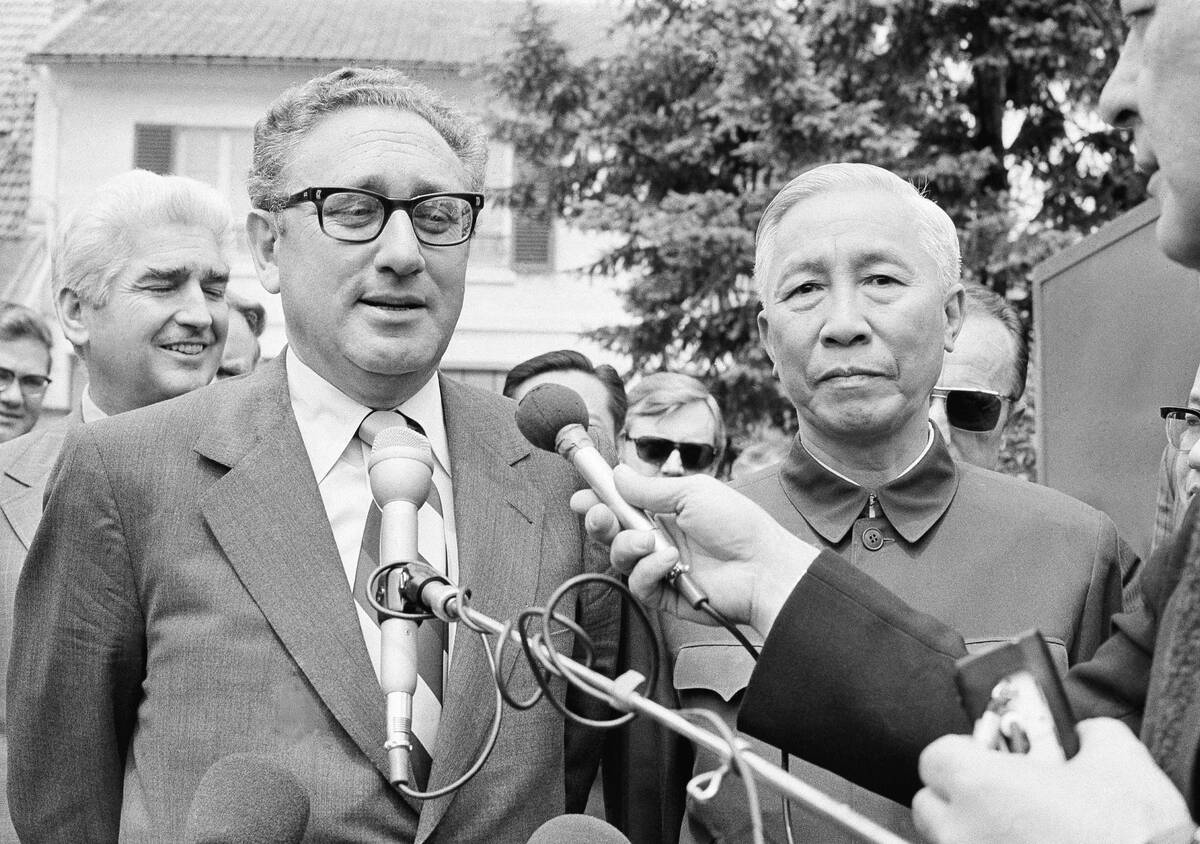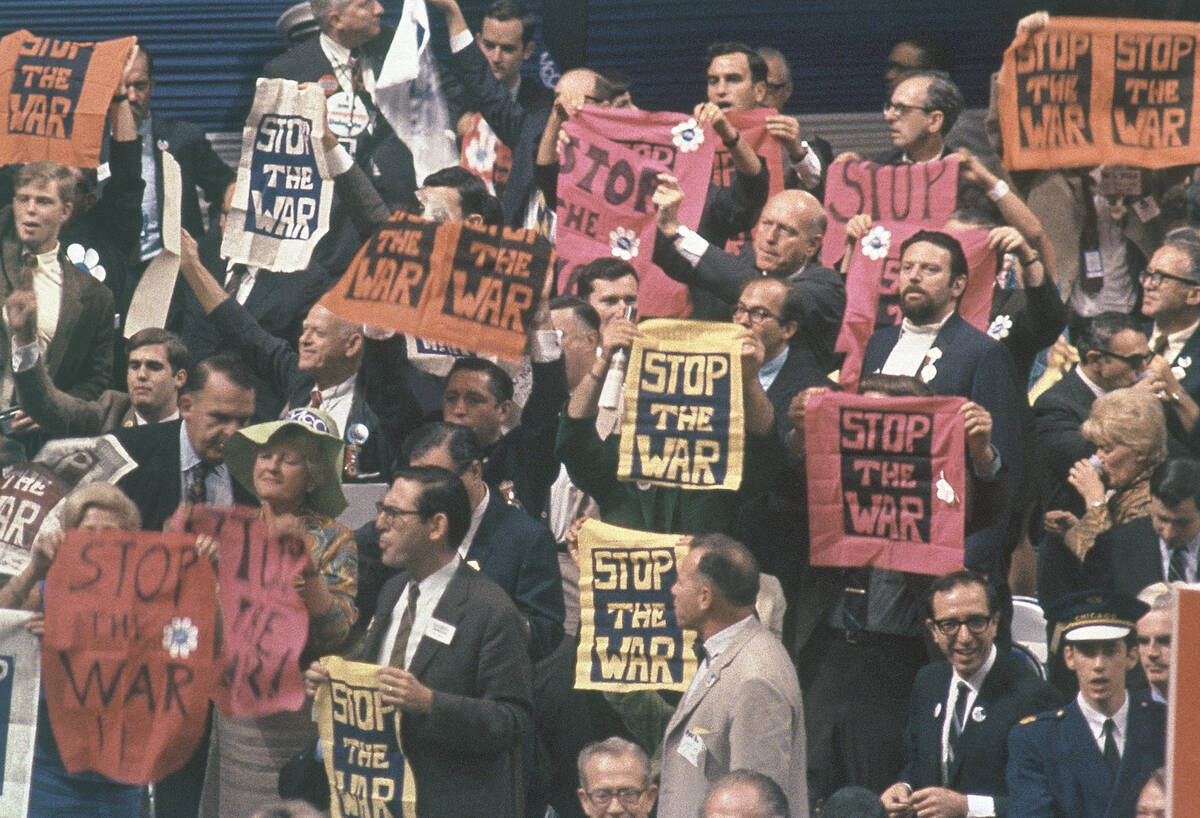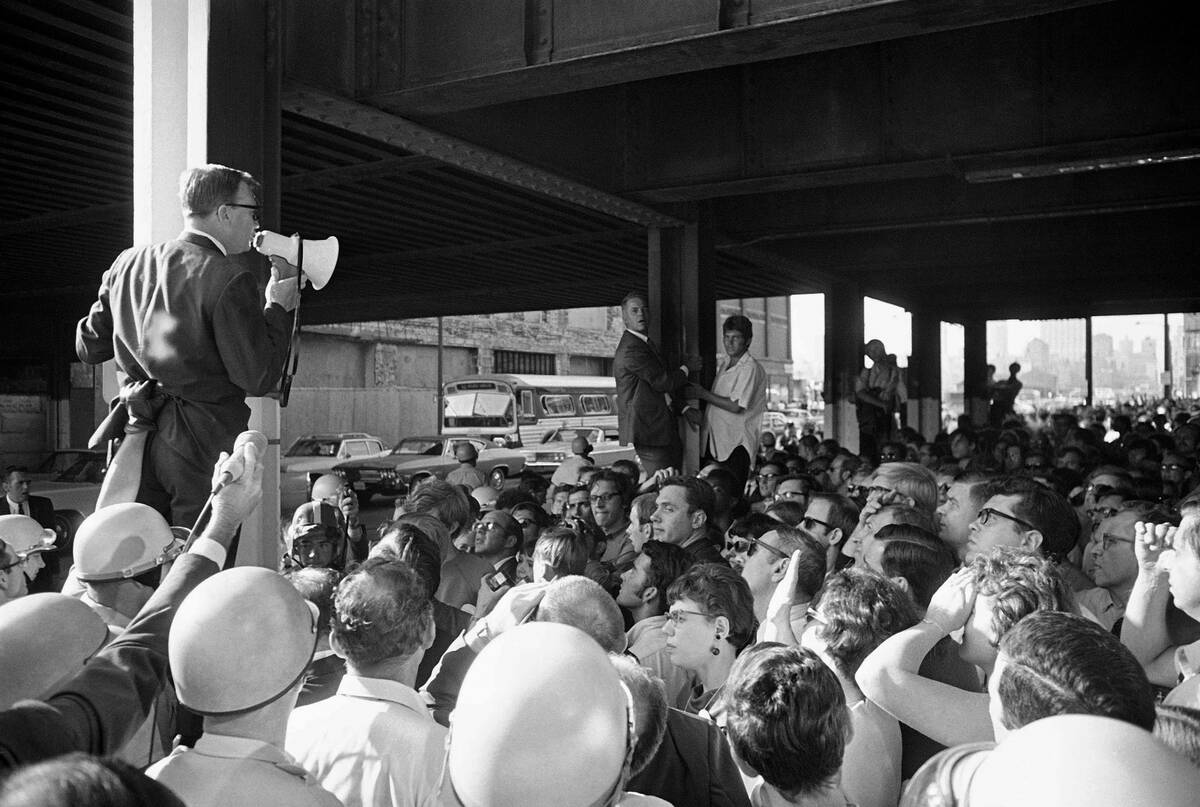COMMENTARY: Lessons from 1968 for a tumultuous 2024
The stakes in the 2024 election could not be higher. Incumbent Joe Biden has accused Donald Trump of being “willing to sacrifice our democracy” to put himself in power, while Trump has claimed that the “country is being destroyed” under the Biden administration.
At a time when it seems politics couldn’t get any messier, it’s helpful to consider some parallels from recent history. Specifically, this election resonates with the tumultuous climate of the 1968 election — a year that paralleled today’s divisiveness yet also heralded the resilience of American democracy during some of the country’s darkest moments.
That election 56 years ago was nearly a rematch similar to the one America is about to witness: 1968 Republican candidate Richard Nixon had lost to John F. Kennedy in 1960, and JFK’s brother, Robert Kennedy, had all but locked up the Democratic nomination when he was assassinated. Domestically, incumbent Lyndon B. Johnson’s expansive government policies stirred unease among proponents of limited federal power. Internationally, events such as North Vietnam’s Tet Offensive rattled already shaky American confidence, which parallels declining support today among some Americans for allies in Ukraine and Israel. The period was further darkened by civil unrest, the assassination of Martin Luther King Jr. and racially charged politics, climaxing in the chaos of the Democratic convention in Chicago that year.
While Nixon won the 1968 election, it didn’t settle national unrest. Protests, riots, disorder and crime continued while inflation accelerated. The economy slumped. An energy crisis developed as domestic oil production peaked. Nixon’s administration saw continued expansion of social spending, major new economic regulations, price controls and, ultimately, the Watergate scandal. All this eventually ended in his resignation, leaving a lasting dent in public trust in the government, followed by dozens of new faces elected to Congress and a slate of “good government” reforms.
Even this genuinely tumultuous period, which cannot be overstated how serious it was for the country and trust in government and our leaders, eventually saw a return to political stability and national self-confidence. Jimmy Carter, the next Democrat to win a presidential election in 1976 after Nixon, presided over continued economic stagnation and held the line on continued government expansion while reigning in excessive regulation. Ronald Reagan’s landslide victory over Carter in 1980 provided a path for the Republican to continue the deregulatory agenda and focus on the Sun Belt states.
All this provides reasons for caution and hope. Caution first: Congressional power and other institutions that held back executive branch overreach and abuse in the 1960s and 1970s have waned. Modern oversight has become more a means of scoring political points rather than a check on executive power. The presence of an aggressive but apparently stable peer superpower in the form of the Soviet Union made foreign policy solutions more clear-cut than those in today’s multipolar world.
Today, we likewise grapple with the speed of the internet and endless domestic and international mis- and disinformation campaigns landing in inboxes, tearing through social media and infiltrating news outlets.
Still, America shouldn’t give up. The solutions of the past may not fit current circumstances precisely, but the principles can: new social consensus, renewed resolve on longstanding commitments and pullback of certain policies provide a road map.
History also recounts victories over seemingly insurmountable issues. The period between the 1960s and late 1980s was marked by progress on civil rights, American victory in the Cold War thanks to a defense buildup, and the taming of inflation. Ending price controls and new production ended the energy crisis and reduced real prices for gasoline.
By the 1990s, new policing tactics and significant prison investments even brought about a long-term decline in crime.
The development and expansion of the internet domestically and globally has primarily been a force for good — connecting people, lowering barriers to knowledge and expertise and so much more. For better and for ill, some changes we’re seeing today may become more-or-less permanent features of the American system.
Of course, not everything will return to “normal.” But as the preamble to the Constitution notes, we strive for a more perfect union.
Eli Lehrer is the president of the R Street Institute. He wrote this for InsideSources.com.



















